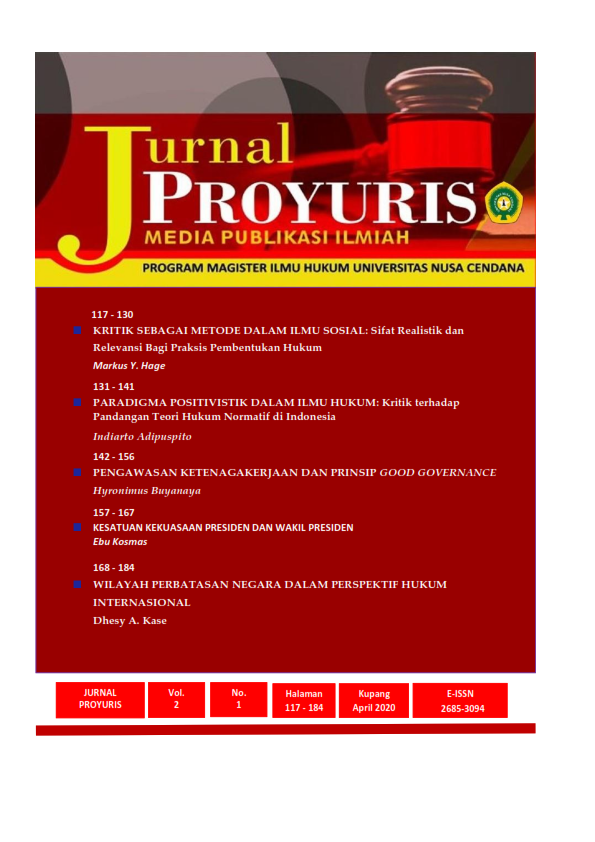PENGAWASAN KETENAGAKERJAAN DAN PRINSIP GOOD GOVERNANCE
Abstract
The central issue of this study is the philosophy of labor supervision and the principle of good governance. Non-conducive working conditions, globalization and free market and subordination of labor positions of entrepreneurs due to the incompatibility of accessibility (economic,strategic-resources) implications for moral problems, the problem of loss of responsibility (Corporate social responsibility). The legal content of this study is the philosophy of labor supervision and the principle of good governance. The research results that the company has no social responsibility for the welfare of workers/workers as stakeholders. (i) The social responsibility of entrepreneurs is limited to the economic responsibilities, by conducting instructive instrumentation, behavior directed for the benefit of entrepreneurs (self-interest) and has not done authentic rationality (extended rationality): Expanding the rationality of not only self-gain (self-interest) but the welfare of workers/laborers; (ii) The liability of the company is still limited to legal obligations, i.e. what is governed by law. The law regulates the minimum wage rate of each region but the law does not regulate whether the wages of workers/workers should rise and how much it can be enjoyed by a worker/Labour when the company gains increase from the previous year; (iii) The company has not adopted the general principles of the Organization such as procedural fairness, informed concent, respect for contractual agreement, is another normative test tool in the stakeholders' relationship. (iv) No legislation found explicit regulating the responsibility of entrepreneurs enhances worker welfare. CSR still leads to the prestige programs of the company and has not touched the substantive interests of workers/workers. Establishing a harmonious industrial relationship is recommended: to form legal regulations which substance require that corporate social responsibility to realize the welfare of workers/laborers in the workplace: (a) decision-making process relating to the basic interests of workers/workers must be transparency and obligation of the company to hear objections, opinions and suggestions of workers/workers; (b) The free agreement of the worker/Labour in the making of the employment agreement, Collective Work Agreement (PKB) which is based on the adequate knowledge of all Parties (c) the compliance/loyalty of the parties to the work agreement or joint working Agreement; (d) The company has to compensate the losses caused by the company; (e) The company provides benefits to employees and workers and improves the quality of life in the workplace beyond what is required by the economy and the law. The company provides bonuses or raises the UMP that has been stipulated by legislation at the time the company's marginal profits rise.

 Hyronimus Buyanaya(1*)
Hyronimus Buyanaya(1*)

